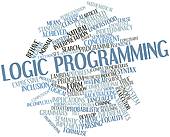
Departamento de Ciência de Computadores

Disciplina: Programação Lógica / Logic Programming
Important Dates
1st Test: (SOLUTION) October 27th
CHANGED to October 24th (2 to 4pm)
2nd Test: (SOLUTION) December 15th  CHANGED to December 12th (2 to 4pm, in the lab)
CHANGED to December 12th (2 to 4pm, in the lab)
Assignment: This assignment is to be
delivered in three parts. There are 4 different projects you can
choose from. You need to choose only ONE. All three projects are
divided in three parts that have different deadline dates.
- Part #1: Oct 7th (natural language processing and conversion to
Prolog queries/programs)
- Part #2:
Oct 28th (main engine - sets of rules used to solve your chosen problem)CHANGED to November 6th
- Part #3:
Nov 25th (all integrated through a graphical interface)CHANGED to December 3rd
Exam - 1st phase

Important Note
Academic Misconduct
All examinations, programming assignments, and written homeworks must
be done by each team. Cheating and plagiarism will be dealt with in
accordance with University procedures (see below the two documents
related to the topic). Hence, code and reports for programming
assignments should not be shared across teams. You are encouraged to
discuss ideas, approaches and techniques with your peers, but code and
reports should be unique for each team. Additionally, text written in
reports should not be copied from internet sources. The same
holds true for code.
Please, have a look at the documents below.
Theoretical classes
Sep 19th: Introduction (PT, EN)
Sep 22nd: Deductive Systems and Prolog syntax
Sep 26th: The Prolog Language
(discussion of examples of practical class: ackerman and batsmen)
Sep 29th: The Prolog Language
(more syntax and lists: last, append, member, etc)
Oct 3rd: The Prolog Language
(more syntax, example: append, introduction to the use of the cut operator)
Oct 6th: The Prolog Language
(more syntax, intro to Definite Clause Grammars - DCGs)
Oct 10th: The Prolog Language
(backtracking, more about cuts, lists and builtin
predicates)
Oct 13th: The Prolog Language
(binary tree - predicate lookup)
Oct 17th: Depth-first search in Prolog (predicate path - called dfs in class)
Oct 20th: Breadth-first search in Prolog (predicate bfs) and an example of implementing transitions (Hanoi)
Oct 24th: Breadth-first search in Prolog (predicate bfs) (cont.) and Interpreter of Prolog in Prolog!
Oct 26th: Interpreter of Prolog in Prolog (cont.) and Meta-predicates (clause, arg, =.., functor etc)
Oct 31st: Sorting and N-queens
Nov 3rd: N-queens (cont.)
Nov 7th: Prolog and Databases
Nov 10th: Implementation of Prolog
Nov 14th: Implementation of Prolog (cont.)
Nov 17th: Implementation of Prolog (cont.)
Nov 21st: Implementation of Prolog: example of execution with state of the WAM machine
Nov 24th: Constraint Logic Programming
Nov 28th (+1h): Constraint Logic Programming (cont.: n-queens) and back to Prolog: examples (matmult - problem 10 of list #3 and propositional theorem prover - problem 5 of list #2)
Dec 1st: NO CLASS (holiday)
Dec 5th (+1h): Pout-pourri of built-in predicates and examples
Dec 8th: NO CLASS (holiday)
Dec 12th: Assignment: Part #3 presentations
Practical Classes
Week 1 (Sep 19th):
Week 2 (Sep 26th):
Week 3 (Oct 3rd): Part #1 of Assignment
Week 4 (Oct 10th): List #2
Week 5 (Oct 17th): List #2 (cont.) and Part #2 of Assignment
Week 6 (Oct 24th): TEST #1
Week 7 (Oct 31st): List #3 (training basic Prolog reasoning) (pdf) (html)
Week 8 (Nov 7th): List #3 (cont.) (pdf) (html)
Week 9 (Nov 14th): List #3 (cont.) (pdf) (html) OR Part #3 of Assignment OR List #4
Week 10 (Nov 21st): List #3 (cont.) (pdf) (html) OR Part #3 of Assignment OR List #4
Solution of selected problems
Week 11 (Nov 28th): Constraint Logic Programming
Week 12 (Dec 5th): List #5 (pdf) (html)
Week 13 (Dec 12th): TEST #2
Recommended Reading
Coding
guidelines for Prolog
Notes
on Prolog (by Matthew Huntbach, Dept of Computer Science, Queen
Mary and Westfield College, London)
Translating Questions to SQL Queries with Generative
Parsers Discriminatively Reranked
Natural Language Processing for Prolog
Programmers
Prolog
and Natural Language Semantics
Prolog and Databases
Datalog
A Gentle Guide to Constraint Logic Programming with Eclipse
Programming with Constraints: an Introduction, Kim Marriott and Peter J. Stuckey, MIT Press
Links of interest
Yap Prolog
SWI Prolog
SWISH
Learn Prolog Now!
Aleph
![]()

 CHANGED to December 12th (2 to 4pm, in the lab)
CHANGED to December 12th (2 to 4pm, in the lab)
